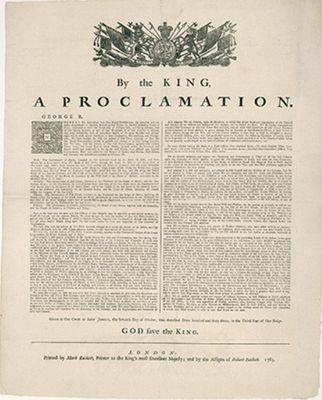(not the recent proclamation)
Now, to arguably
add insult to injury, the Government has proclaimed the new 20-year extension
into force very possibly two crucial days earlier than necessary – namely on
December 30, 2022 rather than January 1, 2023. That matters a lot because it
deprives Canadians of the cohort of material that would have entered the public
domain on January 1, 2023 from the creators who died in 1972. Here is the Proclamation:
Her Excellency the Governor General in Council,
on the recommendation of the Minister of Industry and the Minister of
Canadian Heritage, under section 281 of the Budget Implementation Act, 2022, No. 1, chapter 10 of the Statutes of Canada, 2022, fixes December 30, 2022
as the day on which Division 16 of Part 5 of that Act comes into force.
Perhaps
the most notable Canadian death in 1972 was that of Lester B. Pearson, the great 14th Prime Minister of
Canada and Nobel Peace Prize winner. Historians won’t be happy about waiting
another 20 years to gain full access to any of Pearson’s important writings
that may be needlessly protected in the meantime.
Here’s what Internet Archive Canada had to say.
For
copyright and international law geeks, here’s the CUSMA deal:
For Section H, amendments to Canadian legislation are
required to meet the obligations under Article 20.62 and
Article 20.67. The CUSMA Implementation Act implements these obligations
by amending the Copyright Act. Canada has a transition period of 2.5 years
following the date of entry into force of the Agreement to implement the
obligation in Article 20.62(a) related to extending Canada’s general term
of protection to life of the author plus 70 years (up from plus
50 years).
Here’s where it says we had “2.5 years”
to implement this deal from the day that CUSMA came into force:
Article 20.89: Final Provisions
…
4.
With regard to obligations subject to a transition period, Canada shall fully
implement its obligations under the provisions of this Chapter no later than
the expiration of the relevant time period specified below, which begins on the
date of entry into force of this Agreement.
· (a) Article 20.7.2(f) (International
Agreements), four years;
· (b) Article 20.44 (Patent Term
Adjustment for Unreasonable Granting Authority Delays), 4.5 years; and
· (c)
Article 20.62(a) (Term of Protection for Copyright and Related Rights), 2.5
years.
On
November 30, 2018, Canada, the United States and Mexico signed a
protocol to replace the 1994 North
American Free Trade Agreement (NAFTA) with the Canada-United States-Mexico Agreement (CUSMA
or Agreement). Under the protocol, NAFTA would be formally replaced by CUSMA
upon entry into force of the new Agreement. On December 10, 2019, the
Parties agreed to modify certain elements of the Agreement to improve the final
outcome in the areas of state-to-state dispute settlement, labour, environment,
intellectual property and rules of origin. The Parties subsequently provided
their formal notifications of the completion of domestic procedures in
April 2020. Under the
terms of the protocol, entry into force of CUSMA was set for
July 1, 2020. The Canada-United
States Free Trade Agreement (CUSFTA), which was suspended upon
entry into force of NAFTA, remains suspended until such time as the suspension
of CUSFTA is terminated.
Now, the arithmetic appears quite
simple. Whether “2.5 years” means 2 years and 6 months or 2 years and 183 days,
that would take us to January 1, 2023 and NOT December 30, 2022.
See also the Interpretation Act:
28 Where there is a reference to a
period of time consisting of a number of months after or before a specified
day, the period is calculated by
(a) counting forward or backward from
the specified day the number of months, without including the month in which
that day falls;
(b) excluding the specified day; and
(c) including in the last month counted
under paragraph (a) the day that has the same calendar number as the specified
day or, if that month has no day with that number, the last day of that month.
37 (1) The expression year means any period of twelve consecutive months, except that a reference
(a)
to a calendar year means a period of twelve consecutive months commencing on
January 1;
(b)
to a financial year or fiscal year means, in relation to money provided by
Parliament, or the Consolidated Revenue Fund, or the accounts, taxes or
finances of Canada, the period beginning on April 1 in one calendar year and
ending on March 31 in the next calendar year; and
(c)
by number to a Dominical year means the period of twelve consecutive months
commencing on January 1 of that Dominical year.
But if I’m right about this being a
premature proclamation, the Government owes Canadians an overdue explanation.
However, given the handling of this term extension issue all along, it would not
be prudent to hold one’s breath.






No comments:
Post a Comment